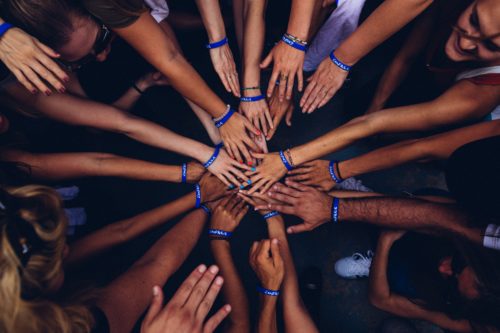
latest
Why we need to listen to carers now and post-COVID

Thursday 26 March saw the nation step out of their front doors, into their front gardens or onto their balconies and clap for several minutes. Some even got hold off pots and pans and banged them enthusiastically.
This continued every Thursday for 10 weeks, and though it initially felt like quite an un-British thing to do, it morphed into something huge. It became a ritual of sorts and even the Queen endorsed it as part of her broadcast message on coronavirus.
Although the Clap For Our Carers movement ended back in May, most of the images and the coverage we saw at the time of clapping were of NHS nurses, doctors and paramedics on hospital forecourts with blue lights flashing and sirens wailing. At the time, neither care workers who work in residential care homes and in a people’s homes nor informal or unpaid carers who look after loved ones were prominent or front of mind. That changed when we started seeing the shocking numbers of cases and deaths in care homes and in people’s own homes.
The social care system has sometimes been referred to as the Cinderella service: last in the queue for funding, low on the list of priorities. Historically it has received very little attention but it deserves much more. More than any part of the care system, the role played by informal or unpaid carers gets the least attention of all. Our own research from last year, prior to the pandemic, highlighted the range of challenges faced by carers as they struggle to achieve a work-life-care balance. Unfortunately, Covid19 has made things harder rather than easier for most carers.
Carers provide support in very difficult conditions, for lengthy periods of time, and many struggle financially even if they receive a Carer’s Allowance. Some have been known to provide care for 18+ hours a day and throughout the night. They do this because of a sense of duty and the love they have for the person they look after. On top of this, Covid19 has made it even more difficult for carers as they’ve had less outside support during lockdown. Also many have become more socially isolated, which no doubt has had a knock-on impact on their mental health and well-being.
It’s fair to say that informal or unpaid carers have been in sharp focus as of late, and for some of us, at the forefront of our minds. After many years, if not decades, of organisations like Carers UK, Carers Trust and the Care & Support Alliance calling for reform to the care system as a whole, the message appears to have started to get through. There is lots of new research and evidence on the impact of COVID on carers including carers providing more care than ever before, closures and reductions in local services and because of care easements, and carers feeling overwhelmed and worried about burning out.
It is vital that carers’ voices are heard and that they are around the table, even if virtually, when discussions about care after COVID and care system reforms take place. They are effectively propping up the care system through the informal care they provide for their family member or friend. They have a unique and personal perspective on what is taking place every day, good or bad, which may not get picked up by the media and heard by policy-makers
This is one of the gaps FCC is hoping to fill in our work with the Social Change Agency on Care Labs. Designed to be inclusive and highly participatory, and based on community organising and movement-building traditions, Care Labs will be open to anyone to organise in their local communities. We are creating these spaces for collaboration and experimentation in social care to enable communities to take more control over their care needs.
Carers are one of those groups that we really want to engage with when holding our Care Labs events – this is because we believe that the social care sector could benefit from convening a diverse range of voices.
Next year on 25th March and one year on from the first clap, it will be Clap For Our Carers Day. Hopefully, this will evolve into an annual national event in recognition of all carers, but at the moment, it appears to only be in recognition of NHS staff and other key workers. This includes care workers but not informal carers. Applauding carers will be a welcome sign of our gratitude, but they also need to see changes take place. I only hope by then more fruitful conversations have been had with those that can change things for the better so that carers and those they care for, are no longer left without the recognition and support they need and deserve.
For more information on how you can get involved with a Care Lab of your own, please visit the website and sign up – https://futurecarecapital.org.uk/projects/care-labs/.



